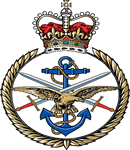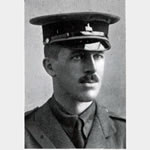Commemorated: | |||
| 1. Memorial: | Neuve-Chapelle Memorial | Panel 1. Neuve Chappelle | |
Awards & Titles: | |||
Family :
Thomas (known as "Tip" was born 23rd July 1882, the eldest son of Mary Wood, of Carlisle Lodge, Howard Rd., South Norwood, London, and the late Thomas Percival Wood; husband of the late Frances Mary Wood. He had a younger brother, Henry.Education & Career :
Educated at Dulwich College, and Peterhouse, Cambridge, to read Classics. He graduated with Second Class Honours in 1904 and from 1906 to 1907 was headmaster of the Lycée Ampère, a prestigious coeducational Catholic school in Lyons most famous as the alma mater of Charles Baudelaire.
See more: Dulwich College 1914-1918.
He then pursued further study at University College London, where he was intimately involved in social and sporting life. In 1910 he emigrated to India, where he became the headmaster of La Martinière College in Lucknow. In 1912 he joined the Freemasons, and throughout his time in India he was a keen officer in the Lucknow Volunteer Rifles."
Service Life:
Campaigns:
- The First World War 1914-1918, World-wide.
| Unit / Ship / Est.: 2/Queen Alexandra's Own Gurkha Rifles |
| Action : The Battle of Loos and associated actions |
"The Battle of Loos (25 September to 18 October 1915) was the major battle on the Western Front in 1915, surpassing in every respect all that had gone before in terms of numbers of men and materiel committed to battle. The preliminary bombardment was the most violent to date and the battle was charaterised by the committment of Regular and Territorial battalions on a large scale, in which the Territorials performed just as well as the Regulars. As the battles on the Western Front in 1915 increased in size and violence, so the casualties increased in proportion: Neuve Chapelle 12,000, Aubers Ridge/Festubert 29,000 , Loos 60,000. 1916 was to take the casualty cost to another level. Loos was intended as a minor role in support of French efforts around Arras but circumstances reduced the French effort. It marked the first use of poison gas by the British. Once the initial assualt had failed the battle continued in a series of actions mostly focused on the northern sector around the tactically important Hohenzollern Redoubt."
Detail :
Thomas landed at Marseilles in the August 1915, where he remained for several weeks before proceeding to the front at Neuve Chapelle. At 6 in the morning on 25th September 1915, Thomas and his men were ordered to attack the trenches of the 13th Prussian Regiment. As they crossed no-man’s-land they suffered from the effects of the gas which had been emitted from the British trenches prior to the attack. They arrived at the Prussians’ parapet without heavy losses but found that the surrounding wire was cut only in a few places. The Prussians inflicted very heavy casualties with machine-gun fire before Thomas and 35 of his men got through the wire. They were all mown down, and Thomas’s body was carried away by the Germans. His bravery received special mention in The Indian Corps in France, and he was survived by his wife and his infant daughter Edith.
On 20th May, 1916, his name appeared in edition of The Morning Post as part of the Roll of Honour and also with Biographical notes similar to that published in The Times.
His death was reported in The Times in the list of fallen officers, 23rd May, 1916. "LIEUTENANT THOMAS PERCIVAL WOOD, Indian Army Reserve, who was reported "missing" on September 25, 1915 and is now reported, through the American Embassy, as killed, was the eldest son of the late T.P. Wood and Mrs. Wood of Howard-road, Woodside, S.E. Born in 1882, he was educated at Woolwich College, from which he won a classical scholarship at Peterhouse, Cambridge. While at the university he rowed in his college boat an wa a keen member of the Cambridge University Volunteer Rifles. He gained second class honours in the Classical Tripos and took his degree in 1904. He was English "Proviseur" at the Lycée Ampère in Lyons during 1906-7, and was later intimately connected with the social life and sports of University College, London. In 1910 he was appointed Principal of La Martiniere College, Lucknow, India. He was an officer of the Lucknow Volunteer Rifles, and offered his services early in the war. He was gazetted lieutenant in the Indian Army Reserve in February, 1915, and after four months with the 1/7th Gurkha Rifles in Quetta, was drafted to the Expeditionary Force in France, where he joined the 2/3rd Gurkha Rifles in September, 1915. He was killed while gallantly leading his men in action. He was married in October, 1913, to Frances Mary, daughter of Captain W.E. Darwall, R.N., of Earlsmead, Walmer, Kent, who with one daughter survives him."
A type-written letter to his mother from a Chaplain, located at HQ Staff, Merut Division, I.E.F on the 20th September 1915, gives further insight to his character: "Dear Mrs. Wood, A week ago to-day I was so surprised when your husband walked into my Room, and we had a long talk. He then said he was sorry he was going to the Trenches for the first time where he knew there would be so big a battle, as he would like his nerves to have been more tuned up. On Friday he made his Communion at a Celebration which I held for the officers and men of the Barilly and Gaikwal Brigades, and that evening I saw him again, about one hour before he moved up to the Trenches. I shook hands with him, wished him good luck. He seemed in splendid spirits. Little died I think I should not see him again. As far as I can gather he died when fighting nobly, though I fear there is little chance of recovering his body as it is either in the German 1st Trench or behind it. When he called on me he told me how glad he was he had seen you safely in England. He spoke affectionately of his school, how well it was going on. Every one there very well remembers that his one desire was to be with Christ through his , and leave all else to him. He has now been called to a higher sphere of work. For him all is peace, but for you the loss must be irreparable. I think of you as Bride and Bridegroom only so short a time ago. May God help you. Yours sincerely, RONALD IRWIN."
Masonic :
| Type | Lodge Name and No. | Province/District : |
|---|---|---|
| Mother : | Chutter Munzil No. 3276 E.C. | Bengal |
Initiated | Passed | Raised |
24th January 1912 | 17th April 1912 | 20th November 1912 |
Source :
The project globally acknowledges the following as sources of information for research across the whole database:
- The Commonwealth War Graves Commission
- The (UK) National Archives
- Ancestry.co.uk - Genealogy, Family Trees & Family History online
- ugle.org.uk - The records of the United Grand Lodge of England including the Library and Museum of Freemasonry
Additional Source:
- Founder Researchers : Paul Masters & Mike McCarthy
- Researcher : Bruce Littley

